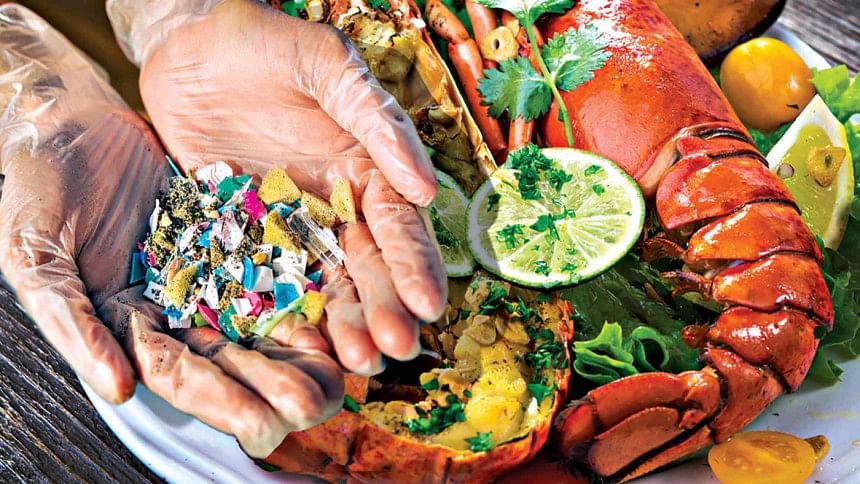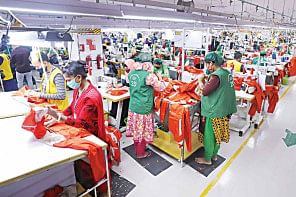Microplastic in our seafood: Macro problem for our health

Microplastics are tiny fractions of plastics measuring less than 5 millimeters in size. Often smaller than the tiniest grains of sands, these particles pose a grave danger to our health. According to the Plastic Soup Foundation, human exposure to microplastics could lead to a range of complications including DNA damage and cancer.
A recent study on the shrimps of Bay of Bengal has revealed that microplastics are present at very high levels in the seafood of Bangladesh as well. Of the 450 samples examined for the study, 92% of them contained 60 -155 pieces of plastics in their bodies, when the ideal amount should be absolutely zero.
In 2002, Bangladesh became the world's first country to ban polythene bags through the amendment of the Environmental Conservation Act, 1995. Nevertheless, the ban has fallen flat in stopping production due to lack of enforcement and it shows in the study as well. Polypropylene and polyethylene, which are used to create polythene bags, plastic bottles and other packaging materials, were the most pervasive types of plastics that were found in the specimens.
Research on microplastic is a fairly new phenomenon. Therefore, the true extent of its damage is largely unknown. However, recent studies have suggested that microplastics can induce inflammation, DNA modification, cellular damage, and even cell death since they are small enough to infiltrate our cells and tissues. Most plastic fragments that we unintentionally consume with our food contain carcinogenic substances. Some of them also absorb hazardous materials including heavy metals, synthetic chemicals, and pesticides, which are extremely detrimental to the human bodies.
In recent days, microplastics have also been found in human blood, which indicates that the plastic particles remain in our bodies long after the ingestion, which as a consequence can lead to a major public health emergency in the subsequent future.
Therefore, to avoid a potential health catastrophe the government must be earnest about enforcing the Environmental Conservation Act. It should also be noted that just banning polythene bags will not be enough. We must strive to ban all types of single use plastics such as plastic bags, bottles and straws altogether.
This problem necessitates plans that ruminate not only over waste management but also the complete lifecycle of plastics from production to disposal. Ergo, the government must collaborate with researchers and the private sector to design effective policies that can curtail the use of plastics in our daily lives. Additionally, we the citizens and the consumers also need to readjust our lifestyles and adapt to more sustainable consumption patterns.
Fariha Tahsin Mercy is a Research Associate at Bangladesh Centre for Advanced Studies (BCAS). E-mail: [email protected]
M. Tanjim Hasan Khan is a freelance researcher and writer.

 For all latest news, follow The Daily Star's Google News channel.
For all latest news, follow The Daily Star's Google News channel. 



Comments